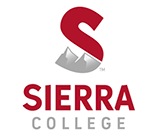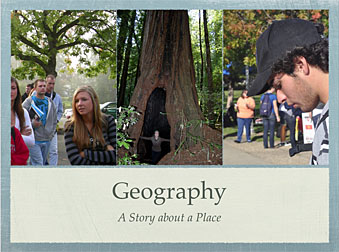
 Geography Department
Geography Department
2025 - Boost Your Global and Cultural Awareness
-
Learn a "Story about a Place"
-
Learn how natural and cultural systems work.
-
Learn by using a fun multidisciplinary approach.
-
Learn how places are connected through wind and water, the web and mass media.
Careers in Geography or related fields
Planner, Pilot, GeoSpatial Analyst, Demographer & Cartographer, Marketing Research Analysts, Park Ranger, Tourist Guide, Natural Resource Specialist, Intelligence Agent, International Consultant, Emergency Manager and really anything related to spatial (maps) and global studies.
- Tough decisions...here are some occupation titles in the technical fields, such as Geospatial Information Scientist
- click here for a long list of job titles.
Geography Emphasis, Degree and Certificate Programs
Geography is split into four (4) general areas:
- physical
- cultural (or human)
- technical geography
- regional and field geography
Take classes from physical to cultural geography to field geography.
Today students are able to complete a Geography for Transfer (AA-T Degree) or transfer to CSU's or UC campuses for a further degree, such as a 4-year degree.
Probably the most promising career path is following technical geography, often referred to as GeoSpatial Technology or Geographic Information Systems (GIS). These type of jobs use modern mapping technology to better understand and analyze natural and human environments. U.S. News and World Report says "GeoSpatial is a Core Tool" is the future for growth jobs. For those interested in a well-paying career, here is some more career information related to GIS.
One of the best ways to follow this career path is to get a "skills certificate" in GIS at Sierra College.
Geography Bulletin Board